
Sun-Kissed Serenity: The Beaches of Benghazi
Benghazi, Libya’s second-largest city, is home to some of the most beautiful and unspoiled beaches along the Mediterranean coast. The pristine shores offer a tranquil escape from the hustle and bustle of city life, making it an ideal destination for relaxation and rejuvenation. Visitors will be captivated by the clear blue waters, soft sandy beaches, and the stunning coastal landscape that stretches as far as the eye can see. The climate in Benghazi is Mediterranean, with hot summers and mild winters, providing perfect beach weather for most of the year. Whether you are looking to sunbathe, swim, or explore the underwater world through snorkeling or diving, Benghazi's beaches have something for everyone. The vibrant marine life and coral reefs are a delight for underwater enthusiasts, revealing a hidden world of colorful fish and sea creatures. In addition to natural beauty, the coastal areas around Benghazi are rich in history and culture. Ancient ruins and historical sites are often just a short drive away, allowing tourists to combine their beach holiday with a journey through time. The local cuisine, featuring fresh seafood and traditional Libyan dishes, is a gastronomic treat that adds a delightful flavor to your beachside experience.
Local tips in Benghazi Beaches
- Visit in the late spring or early summer for the best weather and fewer crowds.
- Local seafood is a must-try; ask for the catch of the day at beachside restaurants.
- Bring snorkeling gear to explore the vibrant marine life and coral reefs.
- Rent a car to easily explore nearby historical sites and ruins.
- Respect local customs and dress modestly when not on the beach.
Sun-Kissed Serenity: The Beaches of Benghazi
Benghazi, Libya’s second-largest city, is home to some of the most beautiful and unspoiled beaches along the Mediterranean coast. The pristine shores offer a tranquil escape from the hustle and bustle of city life, making it an ideal destination for relaxation and rejuvenation. Visitors will be captivated by the clear blue waters, soft sandy beaches, and the stunning coastal landscape that stretches as far as the eye can see. The climate in Benghazi is Mediterranean, with hot summers and mild winters, providing perfect beach weather for most of the year. Whether you are looking to sunbathe, swim, or explore the underwater world through snorkeling or diving, Benghazi's beaches have something for everyone. The vibrant marine life and coral reefs are a delight for underwater enthusiasts, revealing a hidden world of colorful fish and sea creatures. In addition to natural beauty, the coastal areas around Benghazi are rich in history and culture. Ancient ruins and historical sites are often just a short drive away, allowing tourists to combine their beach holiday with a journey through time. The local cuisine, featuring fresh seafood and traditional Libyan dishes, is a gastronomic treat that adds a delightful flavor to your beachside experience.
When is the best time to go to Benghazi Beaches?
Iconic landmarks you can’t miss
Benghazi Zoo
Explore Benghazi Zoo, a captivating combination of wildlife and greenery in Libya, perfect for families and nature enthusiasts alike.
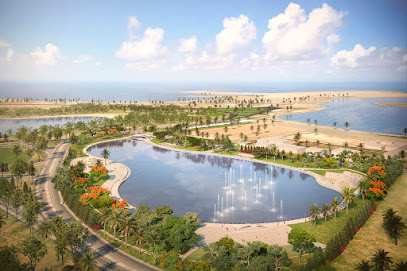
Golden Palm Tree Resort
Experience the perfect blend of relaxation and adventure at Golden Palm Tree Resort in Benghazi, where hospitality meets stunning natural beauty.
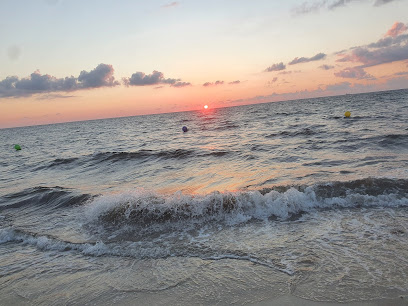
Omar Al-Mukhtar Mosque
Discover the majestic Omar Al-Mukhtar Mosque, a historic landmark in Benghazi that embodies Libya's rich Islamic heritage and architectural beauty.
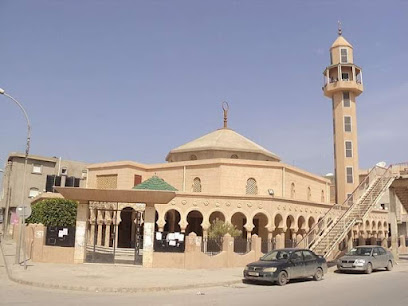
Lake Ein Zeiyana
Experience the tranquil beauty of Lake Ein Zeiyana, a serene escape into nature near Benghazi, perfect for relaxation and outdoor adventure.
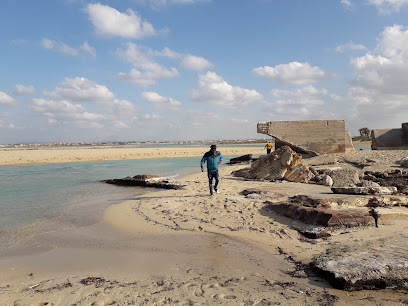
Unmissable attractions to see
Benghazi Zoo
Discover wildlife and family fun at Benghazi Zoo, a cherished park with diverse animals, recreational games, and a tranquil atmosphere.
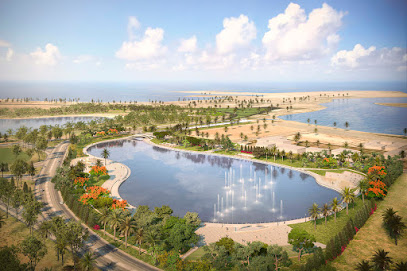
Golden Palm Tree Resort
Experience relaxation and entertainment at Benghazi's Golden Palm Tree Resort, a coastal oasis with beaches, pools, and vibrant social scene.
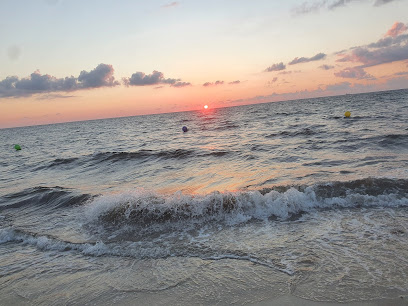
Omar Al-Mukhtar Mosque
Discover the majestic Omar Al-Mukhtar Mosque in Benghazi, a landmark embodying Libya's Islamic heritage and architectural beauty.
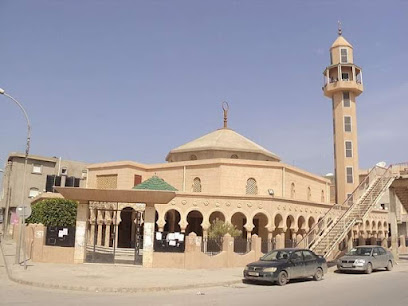
شاطئ الصابري
استمتع بالرمال الذهبية والمياه الفيروزية في شاطئ الصابري، الوجهة الساحلية المثالية في بنغازي.
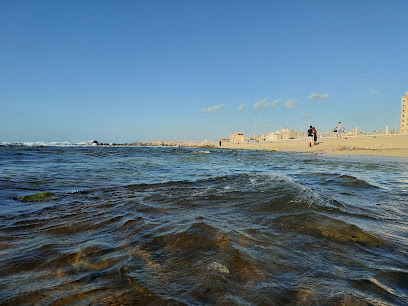
Lake Ein Zeiyana
Escape to the tranquil beauty of Lake Ein Zeiyana in Benghazi, where clear waters meet serene landscapes for a perfect natural retreat.
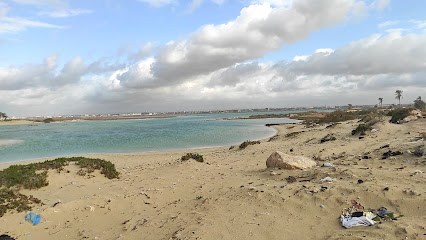
Bushileef ( Scouts Beach )
Discover Bushileef (Scouts Beach) in Benghazi: golden sands, clear waters, and a perfect spot for relaxation and recreation on the Libyan coast.
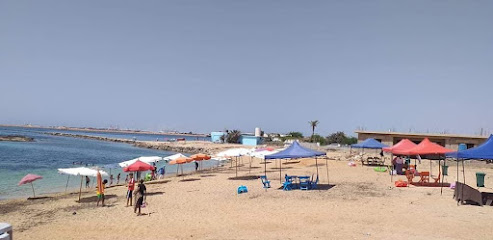
Essential places to dine
Brisket
Savor the finest cuts at Brisket - Western Fwayhat's premier chophouse restaurant offering delicious meats in a vibrant setting.
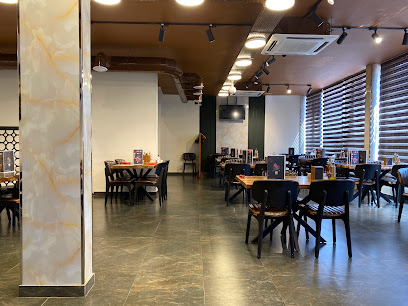
PISA مطعم بيزا
Discover the flavors of Libya at PISA Restaurant in Benghazi – where tradition meets modern dining in a cozy atmosphere.
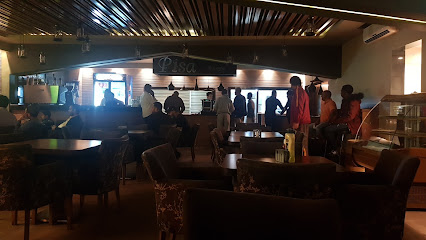
Pause Café
Discover Pause Café in Benghazi - where delightful breakfasts meet cozy vibes for an unforgettable culinary experience.
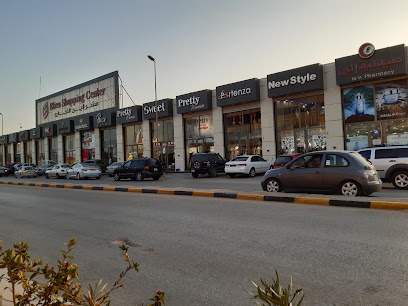
مطعم زعفران - Zafaran Restaurant
Experience the rich flavors of Indian, Afghan, and Pakistani cuisine at Zafaran Restaurant in Benghazi - a true culinary delight!
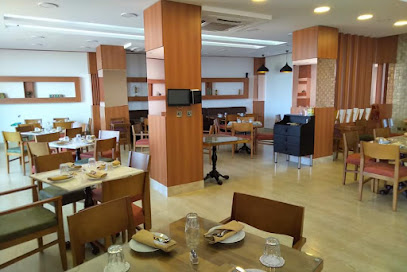
مطعم الكبدة (الزياني)
Discover authentic Libyan flavors at مطعم الكبدة (الزياني), where every bite tells a story of tradition and taste in the heart of Benghazi.
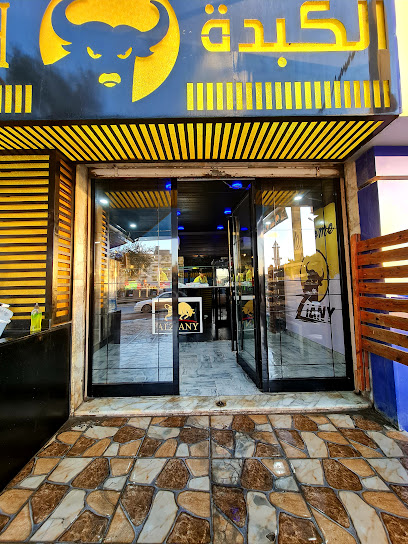
مشاوي علوش بنغازي
Savor the authentic taste of Libya at مشاوي علوش Ben Ghazi – where every meal tells a story of rich culinary heritage.
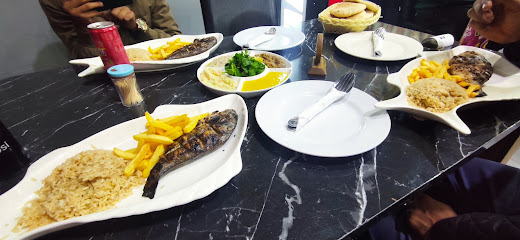
مطعم مشويات علوش فينيسيا
Discover authentic Libyan barbecue at مطعم مشويات علوش فينيسيا in Benghazi—where flavors come alive in every bite!
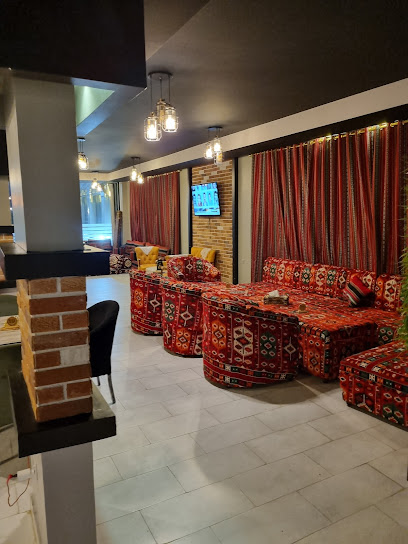
مطعم فلافل زين
Discover authentic Libyan flavors at مطعم فلافل زين in Benghazi - a must-visit for delicious falafel and local culinary delights.
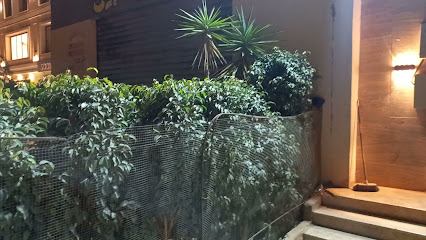
Flaminio - فلامينيو
Experience authentic Italian flavors at Flaminio in Benghazi - where every meal is a celebration of taste and tradition.
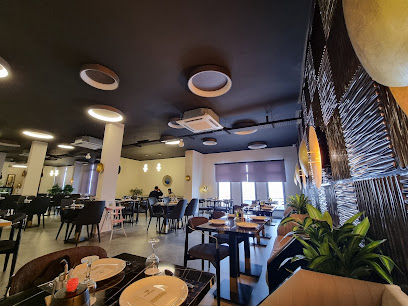
مطعم ممتاز
Experience delicious fast food at مطعم ممتاز in Benghazi - where flavor meets local charm!
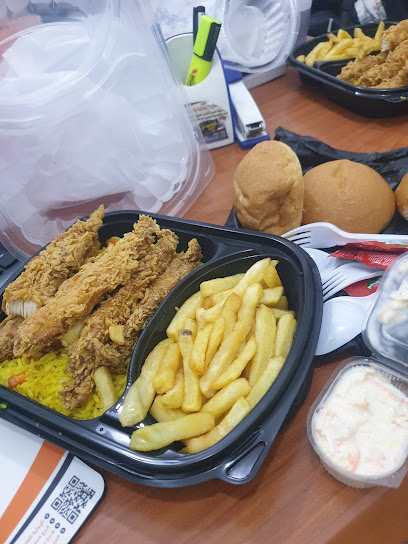
Rooftop Caffe and Bakery - روف توب كافي
Discover Rooftop Caffe and Bakery in Benghazi – where stunning views meet exquisite flavors in a cozy setting.
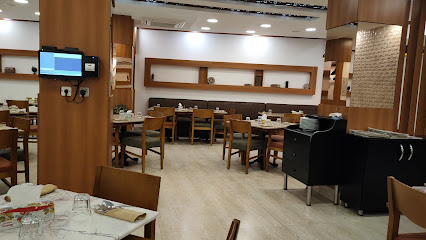
مطعم الكبير
Savor the authentic tastes of Libya at مطعم الكبير in Benghazi, where every dish tells a story and every meal is an experience.
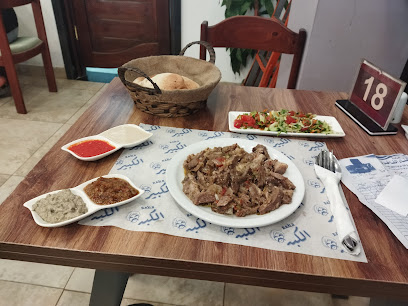
مطعم قاجوج للاسماك
Discover authentic Libyan seafood at مطعم قاجوج للاسماك in Benghazi - where fresh flavors meet traditional recipes.
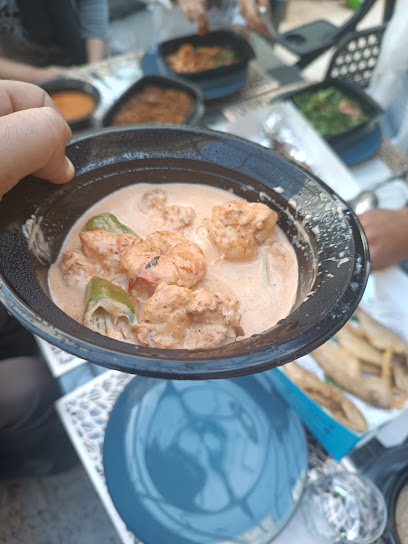
مطعم سمايل
Discover authentic Libyan cuisine at مطعم سمايل in Benghazi - where every dish tells a story.
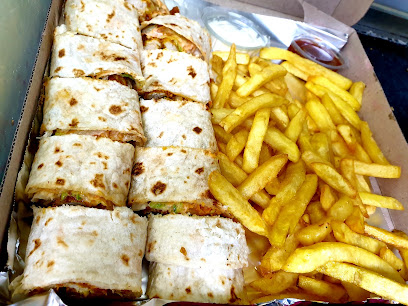
Benghazi Restaurant
Experience authentic Libyan cuisine at Benghazi Restaurant, where family-friendly dining meets rich cultural flavors in a welcoming atmosphere.
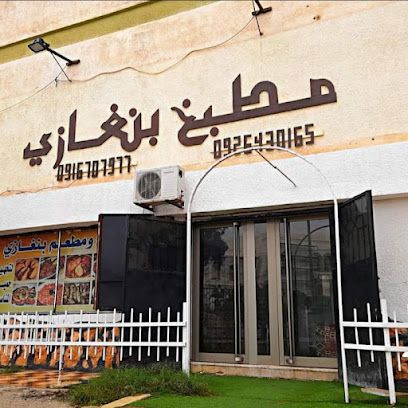
Markets, malls and hidden boutiques
Benghazi Zoo
Discover the beauty of wildlife and nature at Benghazi Zoo, a perfect family-friendly attraction in the heart of Benghazi.
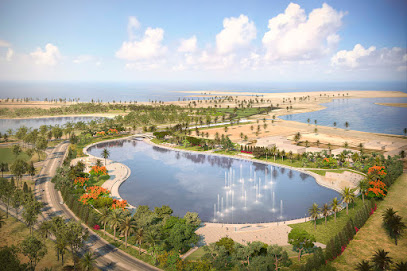
Mall Of Benghazi
Experience the vibrant shopping and dining at the Mall of Benghazi, a cultural hub blending local charm with global brands.
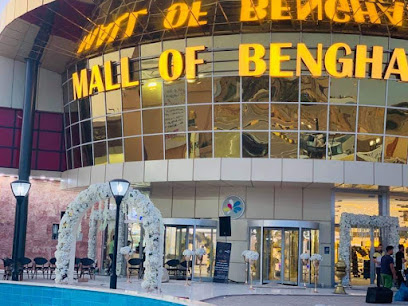
Benghazi Commercial Center
Discover the heart of Benghazi at the Commercial Center, your ultimate destination for shopping, dining, and entertainment.
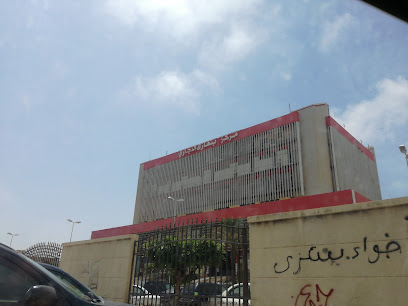
Budzirh Mall
Discover an exciting blend of shopping, dining, and entertainment at Budzirh Mall, Benghazi's premier shopping destination.
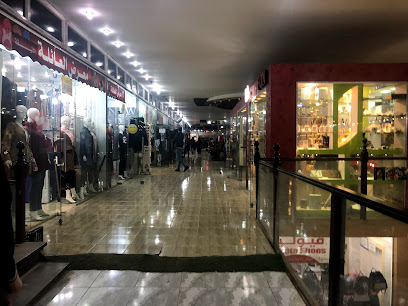
GEANT HYPERMARKET
Experience the best of shopping at GEANT HYPERMARKET in Benghazi, blending local flavors with global brands in a vibrant atmosphere.
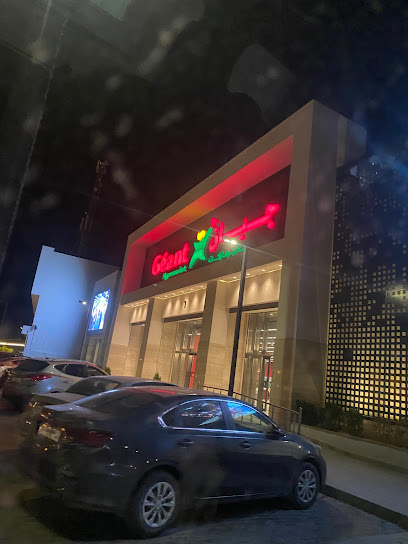
Amira Mall
Explore Amira Mall in Benghazi for a unique shopping experience with diverse stores, dining options, and entertainment for all ages.
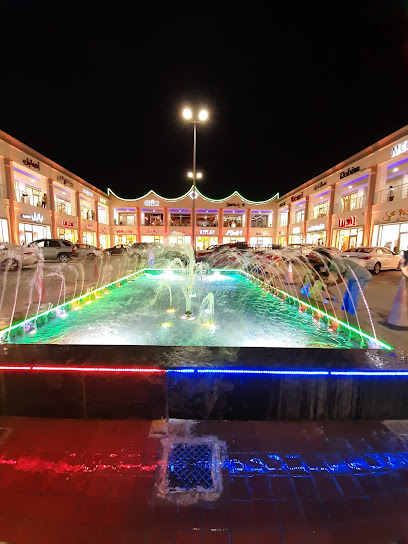
مركز دوجال التجاري العائلي للتسوق فينيسيا
Experience the ultimate family shopping destination in Benghazi at مركز دوجال التجاري العائلي للتسوق فينيسيا, where fun meets fashion.
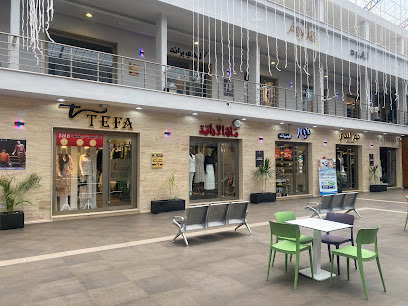
Chill Out cafe & restaurant
Discover the inviting atmosphere of Chill Out Cafe & Restaurant in Benghazi, where quality coffee meets delicious meals in a cozy setting.
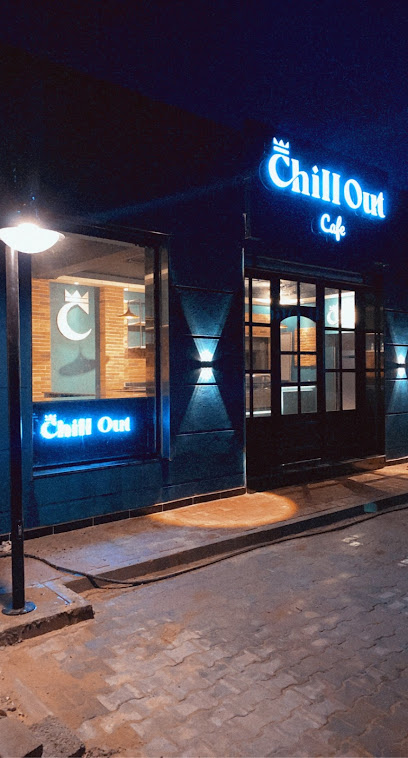
بنغازي الحدائق
Discover the bustling shopping experience at Ben Ghazi Gardens, Benghazi's premier retail and entertainment destination.
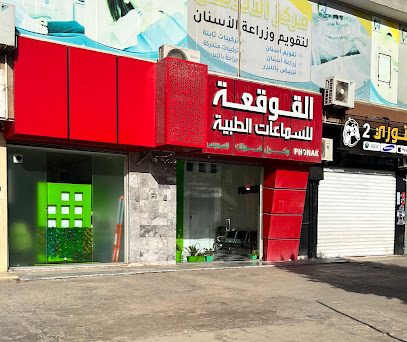
Omar Al-Mukhtar Mosque
Explore the Omar Al-Mukhtar Mosque, an architectural masterpiece in Benghazi rich in culture and spirituality, perfect for every traveler.
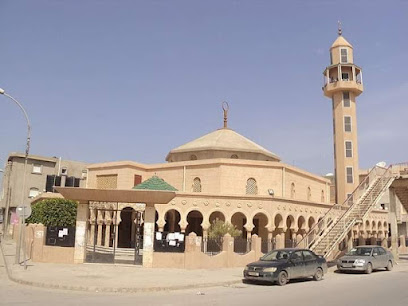
Rooftop Caffe and Bakery - روف توب كافي
Discover the Rooftop Caffe and Bakery in Benghazi, where fresh baked goods meet stunning city views for an unforgettable dining experience.
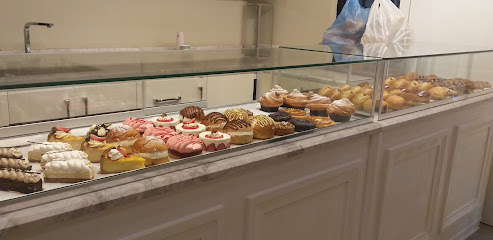
Benghazi Libya
Explore Benghazi, Libya - A vibrant coastal city rich in history, culture, and stunning Mediterranean views, perfect for adventurous travelers.
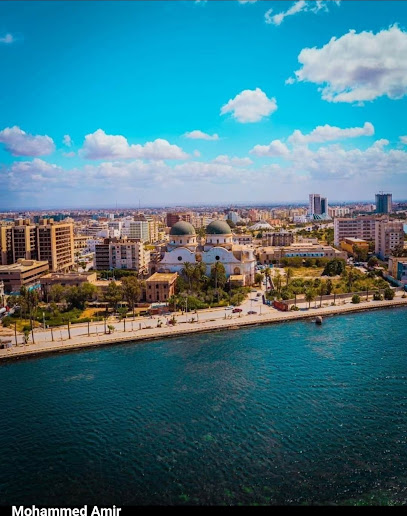
صيدلية الرسالة الطبية
Explore Benghazi with confidence, knowing صيدلية الرسالة الطبية is here to provide all your pharmaceutical needs.

قطع غيار السيارات
Discover a comprehensive range of quality auto parts in Benghazi, perfect for car enthusiasts and everyday drivers alike.
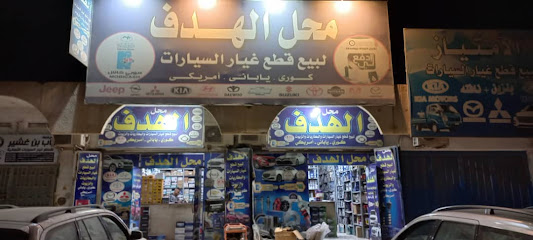
Essential bars & hidden hideouts
Brisket
Experience the ultimate dining adventure at Brisket, a premier chophouse restaurant in Western Fwayhat, offering mouthwatering meats and a cozy atmosphere.
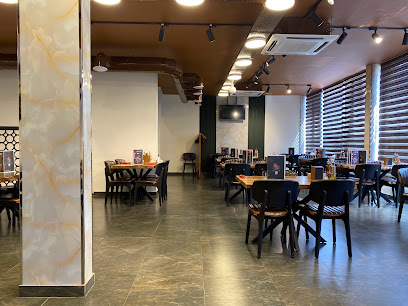
Bala Seafood Restaurant
Experience the finest seafood in Benghazi at Bala Seafood Restaurant, where fresh flavors meet traditional Libyan hospitality.
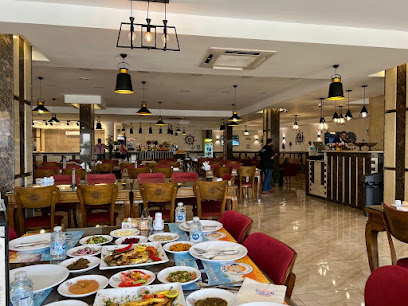
Pause Café
Experience the flavors of Benghazi at Pause Café, a cozy retreat featuring delicious breakfast options and a welcoming atmosphere.
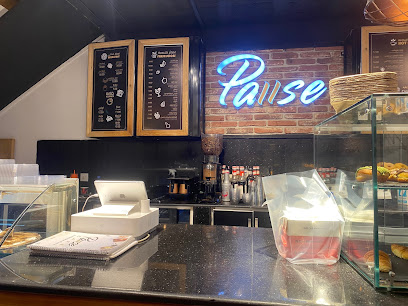
مطعم زعفران - Zafaran Restaurant
Discover the vibrant tastes of Indian, Afghan, and Pakistani cuisine at Zafaran Restaurant in Benghazi - a culinary gem waiting to be explored.
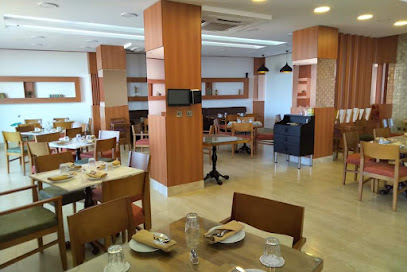
مطعم الكبدة (الزياني)
Discover authentic Libyan flavors at مطعم الكبدة (الزياني) in Benghazi, where traditional dishes meet a warm atmosphere.
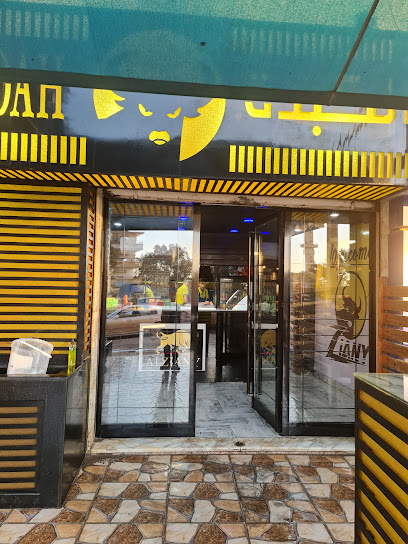
Chill Out cafe & restaurant
Discover Chill Out Cafe & Restaurant in Benghazi for an unforgettable coffee experience and a taste of local cuisine amidst a relaxing atmosphere.
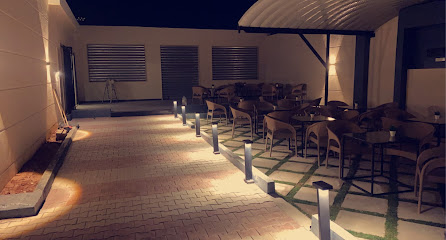
مطعم مشويات علوش فينيسيا
Discover the rich flavors of Libyan barbecue at مطعم مشويات علوش فينيسيا, where tradition meets taste in the heart of Benghazi.
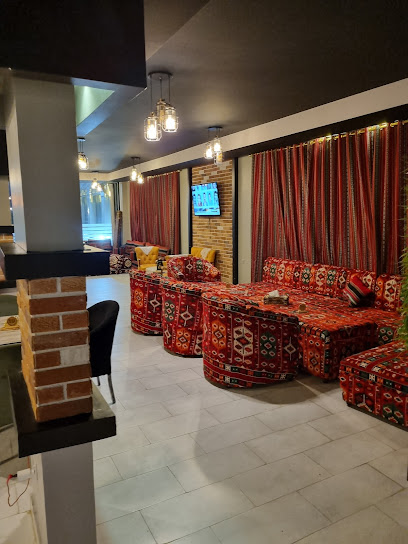
مطعم فلافل زين
Indulge in the authentic flavors of Libyan street food at مطعم فلافل زين, a must-visit restaurant in Benghazi for falafel enthusiasts.
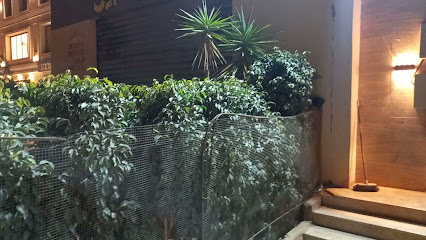
Rooftop Caffe and Bakery - روف توب كافي
Discover Rooftop Caffe and Bakery in Benghazi, where culinary delights meet stunning views for an unforgettable dining experience.
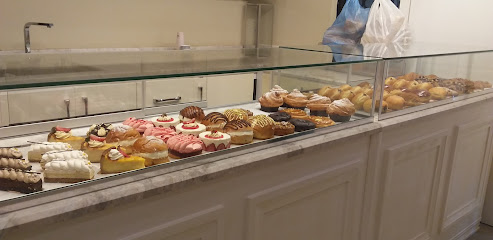
باله لاونج
Discover the vibrant nightlife of Benghazi at باله لاونج, where great drinks and a lively atmosphere await you.

مطعم الكبير
Experience the rich flavors of Libyan cuisine at مطعم الكبير, a must-visit restaurant in Benghazi for food enthusiasts.
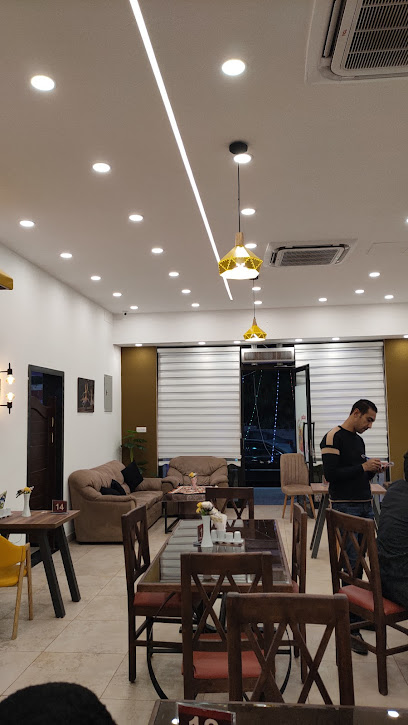
Wild West Cafe & Restaurant
Experience the unique charm and flavors of Wild West Cafe & Restaurant in Benghazi, where every dish tells a story.
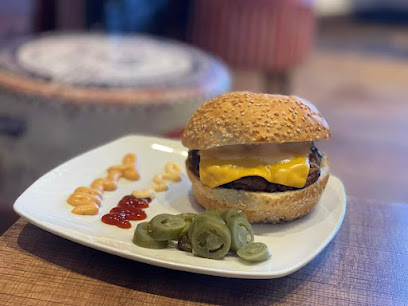
مطعم سوداني
Experience authentic Sudanese cuisine in Benghazi at مطعم سوداني, where warm hospitality meets delicious flavors.
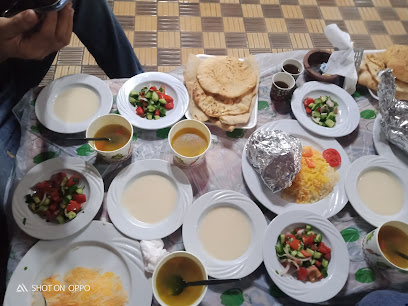
مطعم قاجوج للاسماك
Savor the freshest seafood in Benghazi at مطعم قاجوج للاسماك, where local flavors meet a warm and inviting atmosphere.
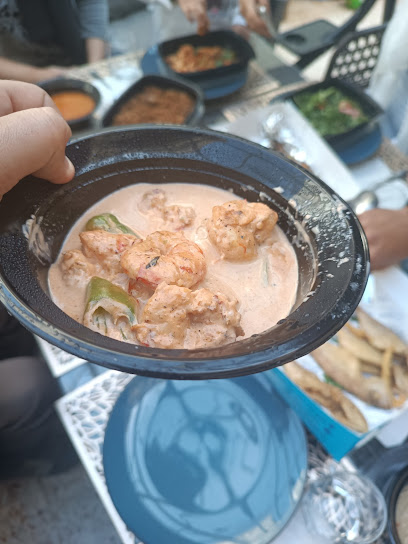
Local Phrases about Benghazi Beaches
-
- Helloمرحبا
[Marhaba] - Goodbyeوداعا
[Wada'an] - Yesنعم
[Na'am] - Noلا
[La] - Please/You're welcomeمن فضلك/على الرحب والسعة
[Min fadlik/Ala al-rahb was-sa'ah] - Thank youشكرا
[Shukran] - Excuse me/Sorryعذرا
[A'ithran] - How are you?كيف حالك؟
[Kayfa halak?] - Fine. And you?بخير. وأنت؟
[Bikhayr. Wa anta?] - Do you speak English?هل تتحدث الإنجليزية؟
[Hal tatahadath al-inglizia?] - I don't understandأنا لا أفهم
[Ana la afham]
- Helloمرحبا
-
- I'd like to see the menu, pleaseأريد رؤية القائمة، من فضلك
[Arid ru'ya al-qaimah, min fadlik] - I don't eat meatأنا لا آكل اللحم
[Ana la aakul al-lahm] - Cheers!في صحتك!
[Fi sahtak!] - I would like to pay, pleaseأريد أن أدفع، من فضلك
[Arid an adfa', min fadlik]
- I'd like to see the menu, pleaseأريد رؤية القائمة، من فضلك
-
- Help!النجدة!
[Al-najdah!] - Go away!انصرف!
[Ansarif!] - Call the Police!اتصل بالشرطة!
[Itsal bil-shurtah!] - Call a doctor!اتصل بالطبيب!
[Itsal bil-tabib!] - I'm lostضاعت طريقي
[Daa'tu tariqi] - I'm illأنا مريض
[Ana mareed]
- Help!النجدة!
-
- I'd like to buy...أريد أن أشتري...
[Arid an ashtari...] - I'm just lookingأنا فقط أتطلع
[Ana faqat atatallu'] - How much is it?كم سعره؟
[Kam sa'ruh?] - That's too expensiveهذا غالي جدا
[Hatha ghali jiddan] - Can you lower the price?هل يمكنك خفض السعر؟
[Hal yumkinuk khafd al-sa'ur?]
- I'd like to buy...أريد أن أشتري...
-
- What time is it?كم الساعة؟
[Kam al-sa'ah?] - It's one o'clockالساعة الواحدة
[Al-sa'ah al-wahidah] - Half past (10)العاشر والنصف
[Al-'ashir wal-nisf] - Morningالصباح
[Al-subah] - Afternoonالظهر
[Al-dhuhur] - Eveningالمساء
[Al-masa'] - Yesterdayأمس
[Ams] - Todayاليوم
[Al-yawm] - Tomorrowغدا
[Ghadan] - 1واحد
[Wahid] - 2اثنان
[Ithnan] - 3ثلاثة
[Thalatha] - 4أربعة
[Arba'a] - 5خمسة
[Khamsa] - 6ستة
[Sitta] - 7سبعة
[Sab'a] - 8ثمانية
[Thamaneya] - 9تسعة
[Tis'a] - 10عشرة
[Ashara]
- What time is it?كم الساعة؟
-
- Where's a/the...?أين هو/هي...؟
[Ayna huwa/hiya...?] - What's the address?ما هو العنوان؟
[Ma huwa al-anaan?] - Can you show me (on the map)?هل يمكنك أن تريني (على الخريطة)؟
[Hal yumkinuk an tarini (ala al-kharitah)?] - When's the next (bus)?متى الحافلة التالية؟
[Mata al-hafilat al-taliyah?] - A ticket (to ....)تذكرة (إلى ....)
[Tathkirah (ila ....)]
- Where's a/the...?أين هو/هي...؟
History of Benghazi Beaches
-
Benghazi, originally known as Euesperides, was founded by Greek settlers in the 6th century BC. The city's early history is marked by Hellenic influence, evident in the archaeological remains of ancient Greek architecture and artifacts found along the beaches. This period saw Benghazi as a thriving port city, facilitating trade and cultural exchanges between Greece and North Africa.
-
In 96 BC, Benghazi came under Roman control and was renamed Berenice after the wife of Ptolemy III. The Roman period brought significant urban development, including the construction of roads, aqueducts, and public buildings. The beaches of Benghazi would have been busy with maritime activities as the city acted as a vital link in the Mediterranean trade network.
-
The Islamic conquest of North Africa in the 7th century AD brought significant changes to Benghazi. Under Islamic rule, the city became an important center for trade, culture, and education. The beaches continued to serve as crucial points for commerce and naval activities, connecting Benghazi with other parts of the Islamic world.
-
In the 16th century, Benghazi fell under Ottoman control. The Ottomans fortified the city and its coastline to protect against European naval incursions. The beaches saw the construction of defensive structures and became points of strategic importance. This period also saw the development of the local economy, with the beaches playing a role in the export of goods such as grain and livestock.
-
Benghazi was occupied by Italy in 1911 during the Italo-Turkish War. The Italian colonial era brought significant infrastructure development, including the modernization of the port facilities along the beaches. The coastal areas were also used for recreational purposes, with the establishment of beach clubs and resorts for Italian settlers.
-
During World War II, Benghazi's strategic coastal location made it a focal point of conflict between the Allied and Axis powers. The beaches and port facilities were heavily contested and bombarded. The Battle of Benghazi saw significant military engagements, and remnants of wartime structures and wrecks can still be found along the coastline.
-
After Libya gained independence in 1951, Benghazi experienced rapid development. The beaches became popular spots for local tourism and recreation. Efforts were made to clean up and develop the coastal areas, making them accessible to both locals and visitors. The beaches of Benghazi continue to be vital for the city's economy, attracting tourists and providing a space for leisure and cultural activities.
-
In recent decades, Benghazi has faced significant challenges due to political instability and conflict. The beaches were affected by the Libyan Civil War, with damage to infrastructure and a decline in tourism. However, ongoing reconstruction efforts aim to restore the city's coastal areas. Initiatives are in place to rebuild and revitalize the beaches, recognizing their importance to Benghazi's cultural heritage and economy.
Benghazi Beaches Essentials
-
Benghazi is accessible via Benina International Airport, located about 19 kilometers east of the city. Several international airlines operate flights to Benina, connecting Benghazi with major cities in Europe, the Middle East, and Africa. From the airport, you can take a taxi or rent a car to reach the beaches, which are about a 30-minute drive away. Alternatively, you can use local bus services, though they may be less convenient for travelers with heavy luggage.
-
In Benghazi, taxis are the most common mode of transportation for tourists. They are relatively inexpensive but be sure to negotiate the fare before starting your journey. Car rentals are available and can be a good option if you plan to explore the surrounding areas. Public buses operate within the city but may not always adhere to a strict schedule. For beach visits, hiring a private driver can provide a more comfortable and flexible experience.
-
The official currency in Libya is the Libyan Dinar (LYD). Credit cards are not widely accepted, so it is advisable to carry cash. ATMs are available in the city, but it's wise to withdraw enough cash for your needs upon arrival. Exchange rates can vary, so check the current rate before exchanging money. Ensure you have smaller denominations for easier transactions, especially in local markets and smaller establishments.
-
While Benghazi has improved in terms of safety, it is still essential to stay cautious. Avoid areas known for high crime rates, especially at night. These include certain parts of the city center and neighborhoods like Al-Laithi and Al-Hawari. Keep your belongings secure and be aware of your surroundings. It is also advisable to stay updated on the local security situation and follow any travel advisories issued by your home country.
-
In case of emergency, dial 193 for police assistance or 191 for medical emergencies. Benina International Airport has its own emergency services. It's crucial to have travel insurance covering medical emergencies. For minor health issues, pharmacies are available throughout Benghazi, but bring any essential medications with you as some medications may not be readily available. Familiarize yourself with the location of the nearest hospital or medical center.
-
Fashion: Do dress modestly. Men should avoid wearing shorts, and women should cover their shoulders and knees. Religion: Do respect Islamic customs and traditions. Avoid public displays of affection. Public Transport: Do be courteous and give up your seat to elderly passengers. Don't eat or drink on public transport. Greetings: Do greet people with a handshake, but note that men should wait for women to offer their hand first. Eating & Drinking: Do try local dishes and accept food offerings graciously. Don't refuse hospitality, as it is considered impolite.
-
To experience Benghazi Beaches like a local, visit the fish markets early in the morning for the freshest catch. Engage with local fishermen who are often willing to share stories about their daily lives. Don't miss out on trying traditional Libyan dishes like Bazin and Asida. For a unique experience, take a sunset walk along the corniche, where you can enjoy beautiful views of the Mediterranean Sea.
Nearby Cities to Benghazi Beaches
-
Things To Do in Misrata
-
Things To Do in Zliten
-
Things To Do in Chania
-
Things To Do in Leptis Magna
-
Things To Do in Rethymno
-
Things To Do in Crete
-
Things To Do in Kalamata
-
Things To Do in Heraklion
-
Things To Do in Siwa Oasis
-
Things To Do in Olympia
-
Things To Do in Zakynthos
-
Things To Do in Tripoli
-
Things To Do in Marsaskala
-
Things To Do in Marsaxlokk
-
Things To Do in Nafplio




